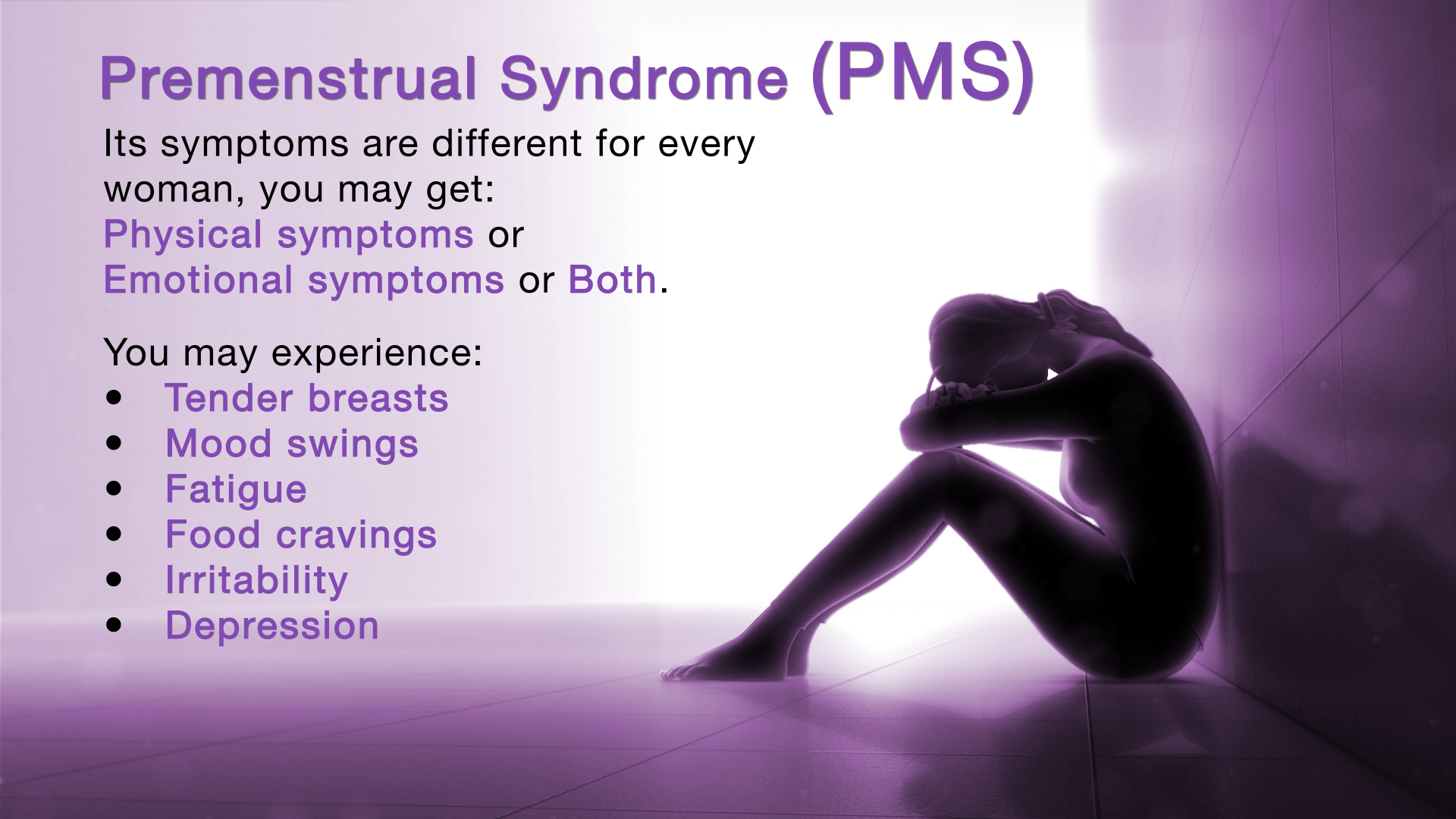Premenstrual syndrome has various signs and symptoms, which includes swings in moods, tenderness in breasts, some food cravings, fatigue, irritability amongst a few. It is estimated to be that approximately 75 % of menstruating women have experienced some form of PMS.

Symptoms
There are many common potential signs and symptoms for premenstrual syndrome, however, most women only experience a subset of these highlighted issues.
Emotional and behavioral signs / symptoms
- Anxiety
- Mood swings and irritation or anger
- Depressive mood
- Spells of crying
- Food cravings
- Insomnia
- Poor concentration
- Social withdrawal (don’t want to be with people sometimes)
Physical signs / symptoms
- Fatigue
- Abdominal bloating
- Cramps
- Muscle and joint pain
- Fluid retention based weight gain
- Breast tenderness
- Acne flare-ups
- Headache
- Diarrhea or constipation
Causes
The exact cause of premenstrual syndrome is not well known, however various factors may contribute towards the condition:
- Cyclic changes in hormones Signs and symptoms of premenstrual syndrome alter with hormonal changes and go away with menopause and pregnancy.
- Depression Some women with severe PMS have depression that is undiagnosed, though depression by itself does not cause all of the symptoms.
- Chemical changes in the brain Fluctuations of serotonin which is a brain chemical (neurotransmitter) that's thought to play a key role in mood states, could trigger some PMS symptoms. Inadequate quantity of serotonin may contribute to premenstrual depression, as well as to fatigue, cravings of certain types of food and sleep issues.
- Smoke
- Not adequate exercise
- Not enough sleep
- Drinking too much alcohol or eat too much salt, red meat, or sugar
Ways to manage PMS
There are various ways to manage PMS. Even if one can’t fully get in fixed, some of the suggestions could help:
- Exercise for around 30 minutes each day
- Eat healthier foods such as fruits, vegetables and whole grains
- Try getting enough calcium from foods (some sources include dairy, green leafy vegetables, and canned salmon amongst others)
- Try not having much salt, caffeine and alcohol
- Don’t smoke
- Get adequate sleep.
- Work to lower the stress
- Journal entry to track your moods and symptoms
Disclaimer: The information in no way constitutes, or should be construed as medical advice. Nor is the above article an endorsement of any research findings discussed in the article an endorsement for any of the source publications.
Sources-
- https://www.mayoclinic.org/diseases-conditions/premenstrual-syndrome/symptoms-causes/syc-20376780
- https://www.webmd.com/women/pms/what-is-pms#2
A female reproductive system consists of ovaries, fallopian tubes, uterus, vagina, cervix, external genitals and each of these parts is susceptible to diseases that can affect fertility.
Read More..
From an ultra-elastic uterus and an overhyped hymen, to the crazy behaviour of hormones while PMSing, the female body is shrouded in mystery.
Read More..











